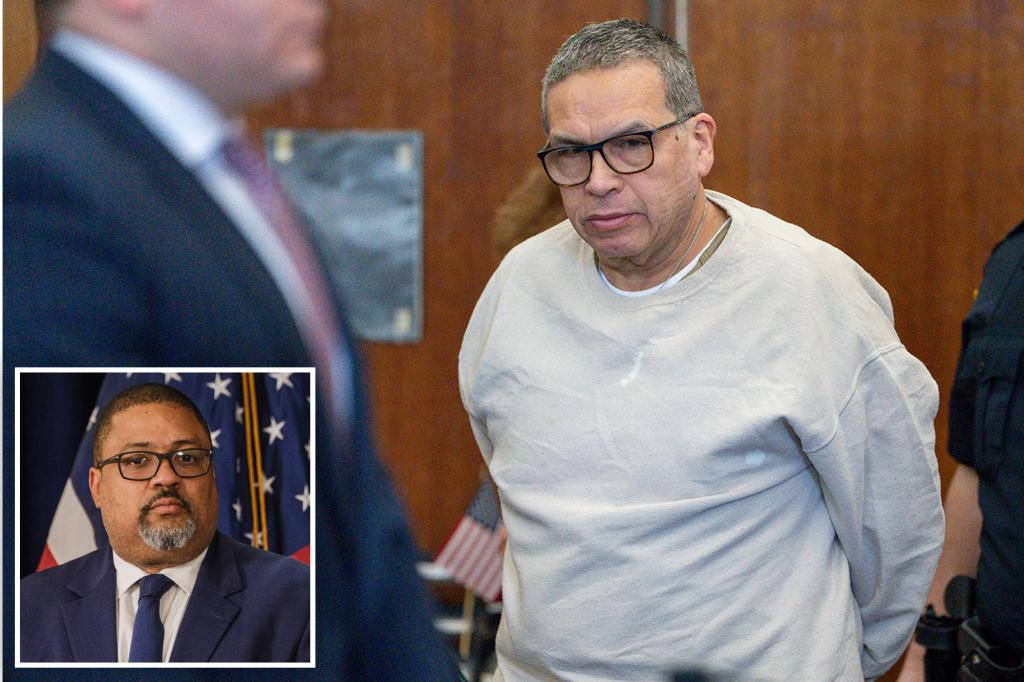Manhattan DA Seeks to Reclaim Victim’s Earnings in Harrowing Case of Labor Trafficking and Abuse
In a disturbing case of exploitation and cruelty, the Manhattan District Attorney’s office is pursuing the seizure of more than $111,000 from Jose Espinoza, a 62-year-old former building superintendent who was convicted in December on multiple charges including rape and labor trafficking. This action aims to recover funds that rightfully belong to his victim, an undocumented migrant woman from Paraguay whom Espinoza subjected to years of horrific abuse. After receiving a 22-year prison sentence, Espinoza now faces this additional financial penalty as prosecutors work to restore some measure of justice to the survivor of his crimes.
The relationship between Espinoza and his victim began in August 2017, when he hired the woman to clean apartments in the West 16th Street building where he worked as a superintendent. From the beginning, the arrangement was exploitative, with Espinoza demanding sexual favors in exchange for employment. When the woman attempted to end this coercive arrangement approximately a year later, Espinoza’s abuse escalated dramatically. He responded with physical violence, seized her passport to limit her freedom, tracked her movements, and systematically stole her hard-earned wages. This pattern of control and intimidation is tragically common in labor trafficking cases, where perpetrators exploit vulnerabilities such as immigration status to maintain power over their victims.
The financial exploitation was methodical and extensive. Court documents reveal that Espinoza forced the woman to open a joint bank account, allowing him to access her earnings directly. Between 2020 and 2024, he diverted more than $100,000 of her wages for his personal benefit and that of his family members. In a particularly disturbing detail that illustrates both his greed and his psychological manipulation, prosecutors revealed that Espinoza kept approximately $11,000 in cash inside a piggy bank in his Flatiron apartment. To maintain constant surveillance over this money, he installed a Ring camera pointed directly at the piggy bank, ensuring his victim could never reclaim what was rightfully hers without his knowledge. This level of control extended far beyond financial abuse, reflecting a comprehensive system of domination.
The emotional and physical torture Espinoza inflicted reached unfathomable depths. Perhaps most shocking among his many crimes was his exploitation of the victim’s special needs child to maintain control. Court records indicate that Espinoza blackmailed the middle-aged mother into silence by demanding naked pictures of her vulnerable child, then threatening to share these images if she didn’t comply with his demands. The depravity escalated further when he forced the woman to engage in sexual acts with him in front of her child, an act of psychological torture designed to break her spirit completely. These actions reveal the calculated cruelty behind Espinoza’s crimes, which went far beyond opportunistic exploitation to deliberate and sustained psychological warfare against a vulnerable woman and her child.
This nightmare finally ended in 2022 when a moment of human connection broke through the isolation that had helped maintain Espinoza’s control. While undergoing treatment for breast cancer, the victim confided in a social worker about the years of abuse she had endured. This disclosure set in motion the investigation that would eventually lead to Espinoza’s arrest and conviction. The case highlights the critical role that healthcare workers and social service providers play in identifying victims of trafficking and abuse, particularly among vulnerable populations who may fear reporting to authorities directly. Despite the conviction, Espinoza maintains his innocence, with his attorney Joseph Caldarera indicating plans to appeal the verdict while declining to comment specifically on the forfeiture proceedings.
The Manhattan District Attorney’s efforts to seize these funds represents more than just financial restitution; it acknowledges the economic component of the abuse and attempts to restore some measure of justice to the victim. Labor trafficking cases like this one involve not only physical and emotional harm but also significant economic exploitation that can leave survivors destitute even after their abusers are imprisoned. By pursuing the return of stolen wages, prosecutors recognize that complete justice must address all dimensions of the harm inflicted. While no amount of money can erase the trauma of years of abuse, the recovery of these stolen funds may provide some practical support as the survivor works to rebuild her life and care for her child in the aftermath of this ordeal. This case serves as a stark reminder of how vulnerable undocumented workers can be to exploitation, and the importance of creating safe pathways for victims to seek help without fear of deportation.


